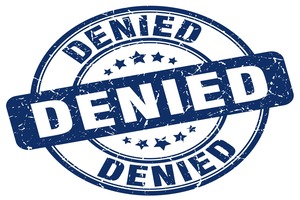Wage garnishment occurs when creditors receive money directly from your paycheck to satisfy a debt. A court order is needed for this to occur and it is often a “last resort” used by creditors to obtain their money. For many, back tax payments to the IRS are what trigger garnishment, though it is possible for any lender to request a garnishment from a debtor.
Sadly, wage garnishment is often the final straw for those suffering financial strain. When your paycheck is less than what you have earned it can send your financial situation into a tailspin. Wage garnishment can be embarrassing, confusing, and frustrating, and it can also create significant financial turmoil in your life. What do you need to know?
What Types of Debts Trigger Wage Garnishment?
Typically, wage garnishment is the result of unsecured debt. If a debtor is behind on medical bills or credit card payments, the creditor requests a wage garnishment to ensure they receive their money, since they are unable to repossess or foreclose on possessions or property. Wage garnishment laws vary from state to state, but some allow removal of as much as 25% of a person’s “disposable income.” Wage garnishment related to IRS payments can be even higher.
Is it possible for wages to be garnished as the result of a spouse’s debt?
Perhaps. In states where debts and assets are shared by couples, both a debtor and his or her spouse’s wages could be at risk for garnishment.
Is a Debtor’s Employer Involved?
Yes, and this can be one of the most embarrassing aspects of wage garnishment. The court order for garnishment is provided to the debtor’s payroll department and they are legally required to comply with the order. A debtor cannot be fired as the result of wage garnishment, but the situation will likely be awkward for many people.
What Happens if a Debtor Switches Jobs?
Wage garnishment can follow a debtor from job to job, but it requires separate court orders. This means a creditor will need to request the wage garnishment every time a person changes jobs. Though changing jobs could reduce the likelihood of facing wage garnishment, it by no means eliminates it, so it should not be viewed as a way to end garnishment.
Is there a Way to Stop Wage Garnishment?
Yes. Two actions will end wage garnishment. The first is paying the debt in full.
The second option for ending wage garnishment is to begin bankruptcy proceedings. Bankruptcy creates an automatic stay that covers all collection efforts, including wage garnishment.
Paying off debt is important, but wage garnishment can create a situation in which a person’s income is stretched too thin. For many, bankruptcy is a better option than wage garnishment because it can allow for reorganization of debt, focus on high priority debt and in some cases, might eliminate a debt all together.
If you are facing wage garnishment or you have other serious concerns about your financial situation, it is important to take action. Contact the Law Offices of Robert M. Geller at 813.254.5696 for help sorting through your options and determine which arrangement is best for your financial future.




























![Signs That You May Need to File Bankruptcy [Infographic]](https://www.attorneyfortampabay.com/wp-content/uploads/2021/01/signs-chap7-v-chap13.jpg)
![How To File for Bankruptcy [Infographic]](https://www.attorneyfortampabay.com/wp-content/uploads/2020/07/bankruptcy-steps-infographic-web.jpg)















